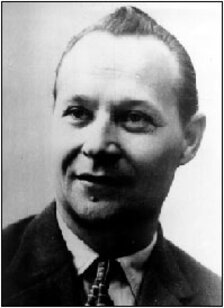
(Editor's Note: This commentary was originally published April 7, 2003. It is being highlighted today to mark the 40th anniversary of the Soviet invasion of Czechoslovakia to quell the Prague Spring.)
When the Eastern European empire of the Soviet Union melted away in 1989, and the Soviet Union itself dissolved two years later, wise observers noted that these developments hadn’t materialized overnight on their own. They were the end result of critically important events that punctuated seven decades of Soviet communism. The 35th anniversary of one of those events is now upon us, and its significance deserves to be remembered. As it unfolded in the tumultuous year of 1968 in the capital of Czechoslovakia, it was known to the world as the “Prague Spring.”
The thawing of the communist deep freeze in Czechoslovakia started in January of that year, when a little-known Communist Party official named Alexander Dubcek became president. The air was thick with talk of “reform” to revive the Czech economy, which once rivaled the richest in Europe, but under socialist rule had tumbled into depression. Dubcek sided with reformers and announced plans to allow a greater role for freedom of expression, private property, and entrepreneurship.
The months of April, May and June 1968 brought breathtaking change. On April 5, the Czech Communist Party itself called for “democratization” of the political system and laid out a plan for eventual elections in which it would compete freely with other parties. Sensing a new era, reporters and editors in the state-run media began speaking their minds, criticizing socialism, and endorsing further reform. On May 1 — a day the communist world traditionally celebrated with parades and paeans to party orthodoxy — Czechs turned out in throngs to endorse the new freedoms. For the first time anywhere in the Eastern bloc, censorship was officially abolished on June 26. The world watched in amazement, and wondered how far the Soviets would allow the Czechs to go.
Of course, the Kremlin was watching developments closely. In late May, high-ranking Soviet military officials visited Czechoslovakia to lay the groundwork for Warsaw Pact military exercises. Six weeks later, a meeting in Warsaw of top Communist Party representatives from the Soviet Union, Hungary, Poland, East Germany and Bulgaria produced a sternly worded warning to Dubcek. “The situation in Czechoslovakia,” they declared, “jeopardizes the common vital interests of other socialist countries.”
In early August, Soviet leader Leonid Brezhnev met with Dubcek in Bratislava and dismissed the suggestion that he might be about to invade. But on Aug. 20, one of the ugliest acts in Cold War history unfolded before a horrified world. A half-million Warsaw Pact troops stormed the Czech borders, heading toward the capital city and strategic points across the country. Along their way, they distributed leaflets proclaiming they were sent “to come to the aid of the working class and all the people of Czechoslovakia to defend socialist gains.” Economic and political liberalization was cancelled and censorship was reintroduced.
Faced with overwhelming force, Czechs met the invaders not with bullets but with protests, the most tragically poignant of which took place in Wenceslas Square in downtown Prague on Jan. 16, 1969. On a spot marked today by a small wooden cross and a plaque, a 20-year-old student named Jan Palach set himself afire. His supreme sacrifice earned him the status of Prague Spring’s foremost martyr.
When a spokesman for the last Soviet leader, Mikhail Gorbachev, was asked in 1987 what the difference was between Gorbachev’s reform policies and those of Prague Spring, his famous reply was “19 years.” The spirit that galvanized the Czech nation in 1968 had not been crushed; indeed, it had infected the very heart of what Ronald Reagan correctly labeled “the Evil Empire.” The freedoms aborted in 1968 were won in the “Velvet Revolution” of November 1989 when, sapped of any moral legitimacy or resolve, communist rule and Soviet domination evaporated as millions of jubilant Czechs danced in the streets.
We should not let the 35th anniversary of Prague Spring pass without reflecting on its meaning, with gratitude for its contribution to the eventual liberation of half a continent. Whether you live in Michigan, elsewhere in America, or anywhere in the world, you can celebrate this important milestone in the age-old struggle for freedom.
#####
(Lawrence W. Reed is president of the Mackinac Center for Public Policy, a research and educational institute headquartered in Midland, Michigan. More information is available at www.mackinac.org. Permission to reprint in whole or in part is hereby granted, provided the author and his affiliation are cited.)

The Mackinac Center for Public Policy is a nonprofit research and educational institute that advances the principles of free markets and limited government. Through our research and education programs, we challenge government overreach and advocate for a free-market approach to public policy that frees people to realize their potential and dreams.
Please consider contributing to our work to advance a freer and more prosperous state.